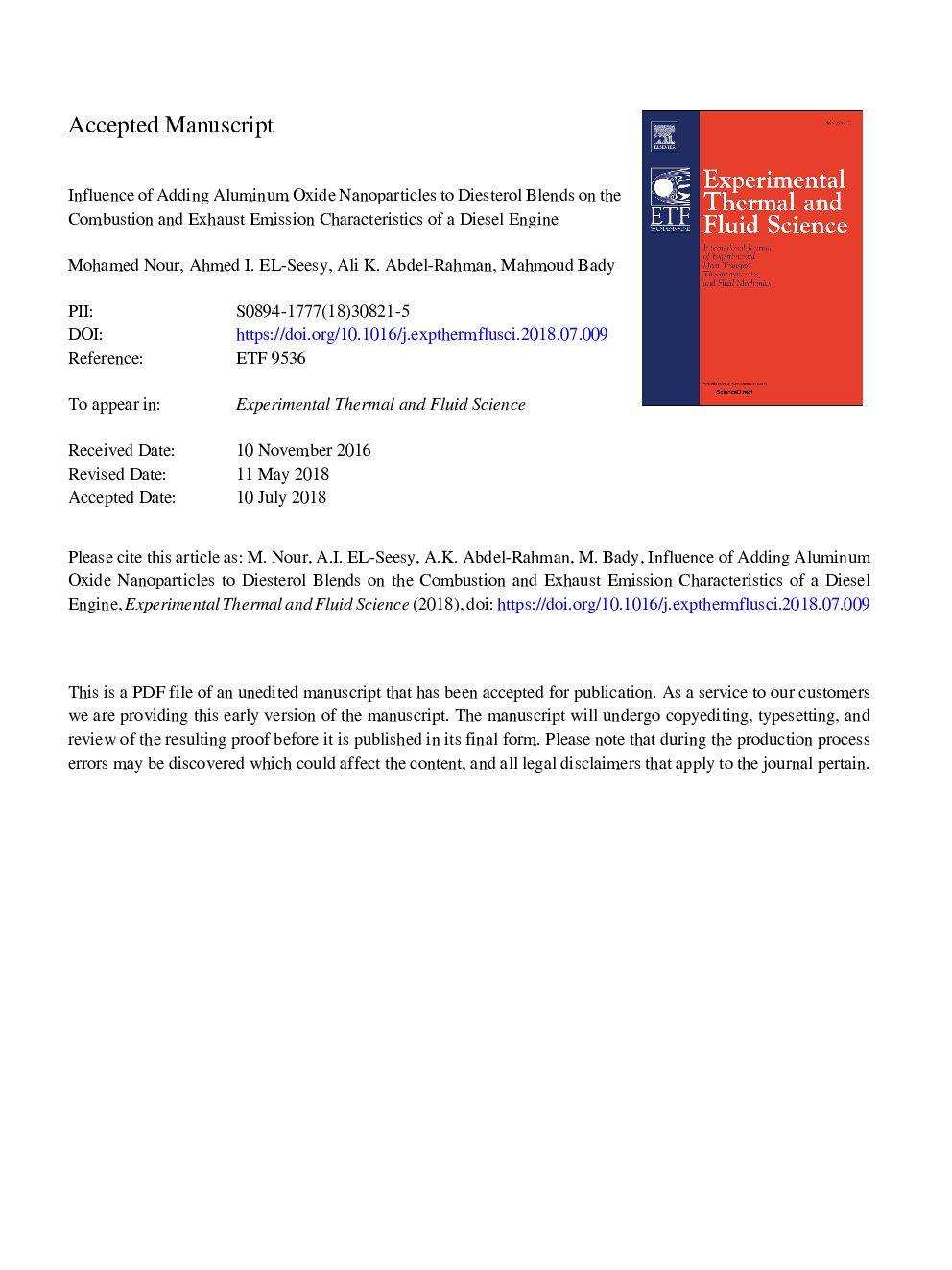| Article ID | Journal | Published Year | Pages | File Type |
|---|---|---|---|---|
| 7051569 | Experimental Thermal and Fluid Science | 2018 | 41 Pages |
Abstract
In the current article, the effects of adding aluminum oxide (Al2O3) nanoparticles into Diesterol blended fuel (70% diesel+ 20% ethanol+ 10% Jojoba biodiesel) on the performance, combustion and emission characteristics of a diesel engine were experimentally investigated. The diesel fuel and ethanol are immiscible; therefore, jojoba methyl ester was used as a mediator solvent to alleviate the phase deposition. The Al2O3 nanoparticles were added at different dose levels of 25, 50, 75, and 100â¯mg/l of Diesterol using an ultrasonic technique. These blends were examined under various engine loads and a constant engine speed of 1500â¯rpm. The Diesterol blended fuel showed an acceptable homogeneity to be tested on the diesel engine. The consequences exhibited that adding Al2O3 nanoparticles in Diesterol enhanced the engine performance, combustion, and emission characteristics compared to those of pure Diesterol. The maximum enhancement was achieved at a dose level of 75â¯mg/l, where the reduction in the brake specific fuel consumption (bsfc) was approximately 20%, while the increase in the peak cylinder pressure was approximately 1.5%. Additionally, the maximum reduction in UHC and NOx emission was obtained at a dose level of 25â¯mg/l, while the concentration of 100â¯mg/l gave the lowest CO emission. The outcomes revealed that the dose level of 75â¯mg/l had the optimum improvement in the overall characteristics of engine performance and emissions.
Keywords
Related Topics
Physical Sciences and Engineering
Chemical Engineering
Fluid Flow and Transfer Processes
Authors
Mohamed Nour, Ahmed I. EL-Seesy, Ali K. Abdel-Rahman, Mahmoud Bady,
